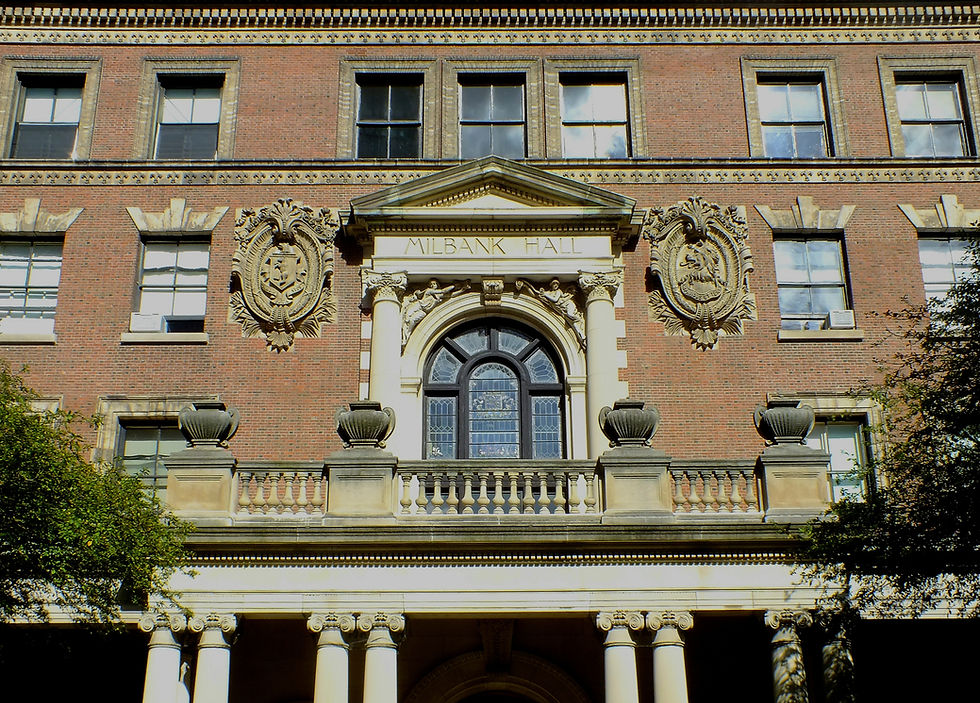The online world vs. the election
- Dec 21, 2024
- 4 min read
Updated: Feb 14, 2025
A reflection on how social media can distort political reality over a month after Trump's election.

Photography by Haley Scull/The Barnard Bulletin
December 21, 2024
1 a.m., election night. The liminal light of my phone screen illuminates my dorm room, creating an air of despair to match the feeling of my sinking heart. As I watch the map of the 50 (supposedly united) states slowly turn more and more red on The New York Times’ election tracker, I cannot help but feel deceived. In the months leading up to the election, I had started to gain a sense of confidence in the support behind former Vice President Kamala Harris and was convinced that she truly had a winning shot at this election. Although I knew the race would be difficult, I had started to believe that it would at least be close. Sitting in my dorm on that fateful Tuesday night, however, I started to realize that I had been greatly misconstrued. As someone who follows politics quite closely (I mean, I am a Politics & Opinion Staff Writer after all), I, perhaps egotistically, believed that there was no possible way in which I could have misunderstood this election quite so badly. And yet, the results of the election proved me wrong.
How, then, could I have been so convinced that Kamala truly had a similar amount of support as Trump did? The answer, as cliche as it seems, is that I had curated my social media feed to tell me exactly that. Do not get me wrong: I read the news and sourced most of my political knowledge from reputable sources. However, every time I opened TikTok or Instagram, I interacted with political videos that supported the Democratic Party or I did not interact with them at all. Kamala HQ became a frequent guest on my “For You Page” and The New York Times posts that I saw on Instagram happened to discuss only issues pertaining to the Democratic Party. As I continued to interact with these posts, they continued to show up on my page with more and more frequency. My friends and I sent each other videos of other teenagers supporting Kamala and texted articles about Project 2025 and how scary it is. It seemed almost crazy to me that people my age support Trump because all the interactions I had online with my peers said otherwise, and the videos suggested to me because of those interactions agreed. I had unknowingly created a personally tailored reality in which I was living.
My online reality, however, is just that: my reality. The online reality that my friends have created for themselves or the reality that people generally are living in are vastly different and inherently unique. Your online reality is vastly different from mine. We are telling our media accounts what to show us, and letting them convince us in turn that the videos that we see are a reality for everybody.
This situation reminds me of a documentary I watched not too long ago titled “The Great Hack.” A Netflix expose of sorts, the documentary discusses the 2016 election and the Facebook-Cambridge Analytica data scandal that occurred at the time. To summarize, Facebook had been selling data points — gathered through each like, share, or post on the app — to this company, Cambridge Analytica, which was hired by the Trump campaign for the presidential election. Cambridge Analytica was using the data to guess people’s political affiliation and then target them with information, real or fake, to get them to support Trump’s campaign. They were purposefully creating a personal online reality for everyone, hoping to influence the election. And the 2016 election was not the only one they had worked on. They were a global enterprise. The implication of the documentary was that true democracy does not exist anymore, not when this type of invisible manipulation is used to influence voters and subsequently the fate of the nation. With more and more people joining social media, the influence that such companies like Facebook, Instagram, Tiktok, and Cambridge Analytica can have are growing by the second.
I am trying to take back control. I try my hardest to not interact with political videos online and I try harder to read a variety of articles rather than mostly ones that align with my personal beliefs. At any rate, I am now actively aware that what I see on social media is not what other people see, and that the divide between reality and the online world is much greater than I had previously believed. In a world where it is so easy to be taken advantage of, in which our beliefs are subtly influenced daily without us knowing, it is imperative to acknowledge the existence of these online realities and to actively disassociate from them. Let’s learn to leave these realities behind in the ether and exist, consciously and fully, in the real world.




